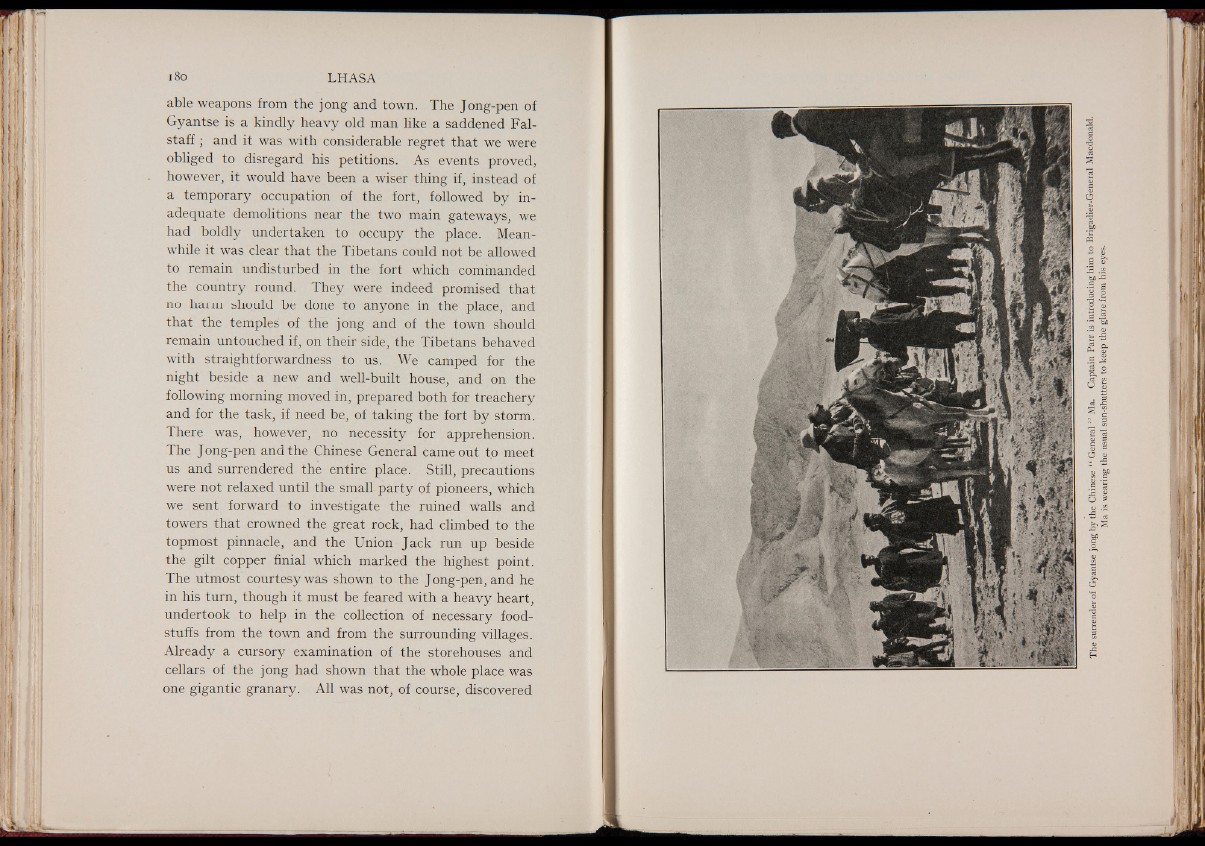
able weapons from the jong and town. The Jong-pen of
Gyantse is a kindly heavy old man like a saddened Fal-
s ta ff; and it was with considerable regret that we were
obliged to disregard his petitions. As events proved,
however, it would have been a wiser thing if, instead of
a temporary occupation of the fort, followed by inadequate
demolitions near the two main gateways, we
had boldly undertaken to occupy the place. Meanwhile
it was clear that the Tibetans could not be allowed
to remain undisturbed in the fort which commanded
the country round. They were indeed promised that
no harm should be done to anyone in the place, and
that the temples of the jong and of the town should
remain untouched if, on their side, the Tibetans behaved
with straightforwardness to us. We camped for the
night beside a new and well-built house, and on the
following morning moved in, prepared both for treachery
and for the task, if need be, of taking the fort by storm.
There was, however, no necessity for apprehension.
The J ong-pen and the Chinese General came out to meet
us and surrendered the entire place. Still, precautions
were not relaxed until the small party of pioneers, which
we sent forward to investigate the ruined walls and
towers that crowned the great rock, had climbed to the
topmost pinnacle, and the Union Jack run up beside
the gilt copper finial which marked the highest point.
The utmost courtesy was shown to the J ong-pen, and he
in his turn, though it must be feared with a heavy heart,
undertook to help in the collection of necessary foodstuffs
from the town and from the surrounding villages.
Already a cursory examination of the storehouses and
cellars of the jong had shown that the whole place was
one gigantic granary. All was not, of course, discovered